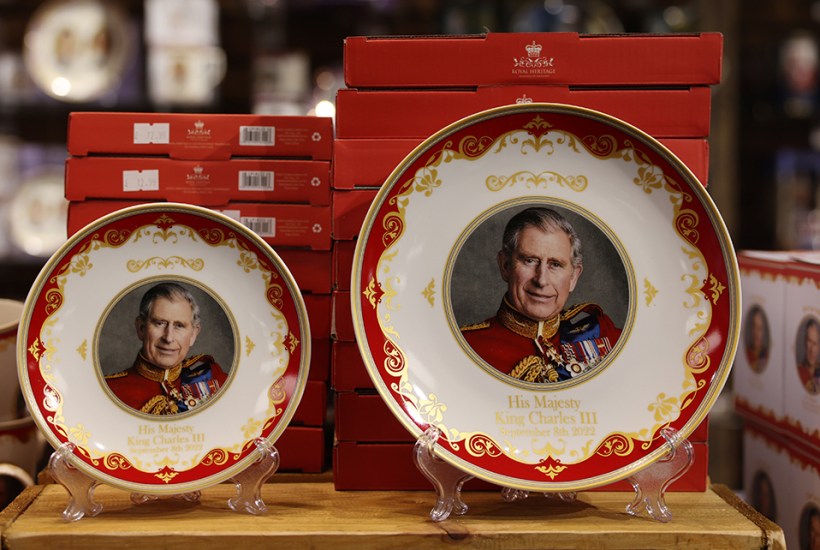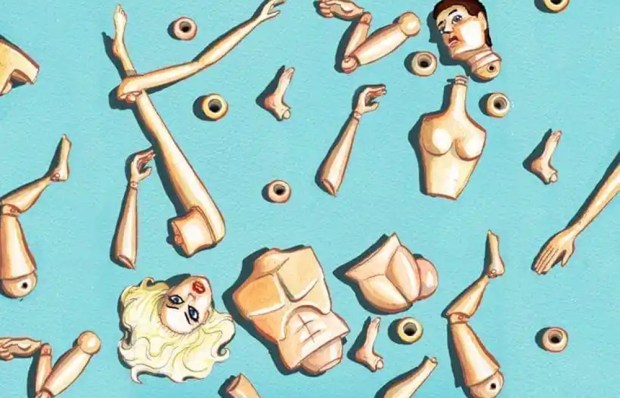The United Kingdom is one of the last countries in the world to host lavish coronation ceremonies. Europe’s new kings and queens keep these events low-key, whereas the British monarchy continues to be marked by splendour and mass popular appeal. This time last year, there were 3,874 applications for road closures to mark street parties to celebrate Queen Elizabeth’s Platinum Jubilee. A coronation is, of course, far more historic. Yet with just three weeks to go, there have only been 274 street party registrations.
In many ways, the disparity is understandable. Elizabeth II had built up huge personal affection over a lifetime’s service. There was also a strong unspoken sense that the Jubilee was our opportunity to bid her a fond farewell – and so it proved, with her balcony appearance on the last day of the celebrations turning out to be her final public appearance. In contrast, the public has not yet had a chance to get to know Charles III as monarch. The same store of collective memories simply does not exist in the shared consciousness.
Elizabeth arrived on the throne with little personal baggage. She was intent on being a unifying figure, and she remained unfailingly neutral for 70 years. In contrast, Charles has spent his lifetime’s apprenticeship forging a role as a campaigner. He has been careful not to stray into party politics, but he has found that campaigning can by its very nature be divisive. Many in the environmental movement have lauded him for what he has brought to their cause. The nation’s modernist architects, on the other hand, may feel they have less reason to cheer on 6 May.
The Queen and the Prince took different strategies, and hers was more effective. The monarchy does offer a huge platform to make interventions, but it works best when that platform is not used. The charities that the Queen endorsed were all deeply unfashionable: she sought to avoid controversy here, too. By her example, she bequeathed a rule book on how to run a modern monarchy.
The coronation service for Charles will be markedly shorter than his mother’s. The procession will be half the length, with a truncated route which risks depriving many people of the opportunity for a glimpse. Moreover, certain elements will be missing, including the Speaker’s state coach, which has been used in every coronation since 1831. It will not be wheeled out on such spurious grounds (as a spokesman for the House of Commons told The Spectator) because it is ‘a heritage item’. Is that not the whole point of state pageantry: to celebrate heritage?
The King is often said to favour a slimmed-down monarchy – but at the same time the monarchy risks expanding its influence in the political life of the nation. It is hard to imagine that Elizabeth II would have allowed herself to be enlisted in Rishi Sunak’s deal on the Northern Ireland Protocol so he could call it the Windsor Agreement. Of course it is easy to see why 10 Downing Street would have urged the King to become part of the political choreography, but it is harder to see why Charles accepted.
It is also hard to imagine the Queen being keen on a review looking at the monarchy’s role in the transatlantic slave trade. Undoubtedly the King thinks this is an apolitical gesture, but the reality will be very different. It is almost certain, given the views of the historians who will manoeuvre themselves into being consulted, that this will turn out to be a one-sided affair, and will resist pointing out that George III signed an Act abolishing the slave trade and that his navy enforced it. The Queen took the view that it was best to minimise the number of controversies involving the crown. Charles is less averse.
Keeping the Commonwealth together will also be a challenge. Already, Australia’s parliament has decided to refer to Charles III as ‘the sovereign’ rather than ‘His Majesty’. Stephen Smith, Australia’s new high commissioner to London, has said that the King will ‘inevitably’ lose his role as Australia’s head of state. A recent poll of Canadians found that two-thirds say they are indifferent towards Charles’s accession, with 80 per cent saying they have ‘no personal attachment’ to the monarchy.
When Charles acceded to the throne, he hinted that he would be retiring from his old campaigns. This was a wise decision: the monarch is intended to be a unifying force who discharges that duty best when he or she does not take sides. The international dimension to the job is obviously important: the goodwill that the Queen built up over decades is impossible to replicate. The King will have to use other means of keeping the club together, and this is likely to require much energy.
The Carolean Age will inevitably be far shorter than the second Elizabethan Age, and the King will have far less time to leave his mark. But whether Charles III goes on to earn the affection that his mother commanded will depend on how well he grows into the role of personifying Britain as the head of state. His reign will probably be more understated, with perhaps less public adulation and fewer street parties. But he inherits a monarchy which, as an institution, has as much popular public support as it has at any time in our history – and the good will of a nation willing him to succeed.
Got something to add? Join the discussion and comment below.
Get 10 issues for just $10
Subscribe to The Spectator Australia today for the next 10 magazine issues, plus full online access, for just $10.
You might disagree with half of it, but you’ll enjoy reading all of it. Try your first month for free, then just $2 a week for the remainder of your first year.














Comments
Don't miss out
Join the conversation with other Spectator Australia readers. Subscribe to leave a comment.
SUBSCRIBEAlready a subscriber? Log in